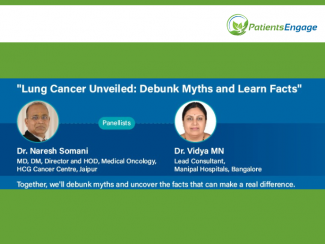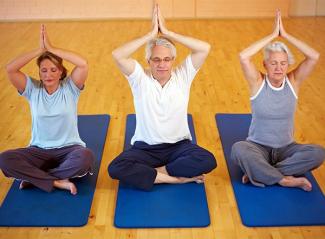
Does Yoga help people manage chronic conditions and the various symptoms? On International Yoga Day, we speak to a cross section of people who believe strongly that yoga has contributed greatly in their journey of recovery1.
Mr Purushotaman - Parkinsons
Mr. Purushotaman is 77-years-old and has had Parkinson's for 4 years. An unassuming gentleman, Mr. Purushotaman is extremely regular for all meetings and yoga sessions conducted by Parivarthan for Parkinson’s. Parivarthan is a community support group for people affected by Parkinson’s based in Chennai, India. Mr. Purushotaman has been a part of customised yoga therapy given by Parivarthan. For the longest time he saw no significant improvement. However, he persisted with his practice. After a couple of months, he found his energy levels going up, particularly when he was regular with his asana and pranayama practice. Mr. Purushotaman’s handwriting has seen a major improvement as well. With a little bit of practice before going to the bank – his signature now comes out perfect.
Contributed by Sudha Meiyappan of Parivarthan for Parkinsons, Chennai
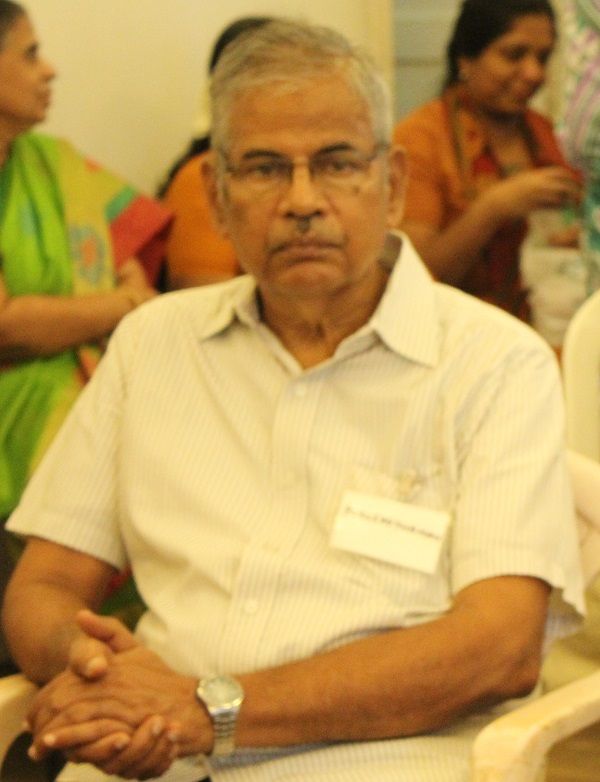
Irene Lim - Lupus
When a friend of mine, who believes in alternative healing, learnt that I was grieving after having been diagnosed with Lupus, she immediately encouraged me to pick up yoga. At that time, I was not in the mood for anything, let alone learn something new. My friend took the trouble to come to my house to pick me up one morning to go for yoga class. I hadn’t been exercising much before that though I had always been an active person. The first day in class was embarrassing for me. It was an ongoing class and most of the people, if not all, had been practising yoga for some time. I felt like a new born chick that had just broken out of an egg shell. ‘I was ‘stiff’ and clumsy and could not do most of the poses that the class was doing. Surprisingly, I really liked the class. It made me feel good, energized and relaxed and I decided to sign on. After 2 months of practising yoga at least twice a day, I improved tremendously. I felt stronger and my spirits were raised. My body ‘opened up’ with the flexibility and alignment and I even became more confident. It was a totally excellent and enjoyable mind and body workout. The stretching and holding poses fostered flexibility, body toning and muscles strengthening while the deep breathing and meditation promoted relaxation and calmness. Best part is, just the basic yoga poses are adequate enough to help practitioners of all ages gain flexibility and strength within and even beyond their own limitations, regardless of how long they have been practising yoga. Yoga also boosts the mood, reduces stress and anxiety and promotes better sleep. Stress is a known trigger of lupus. I believe strongly that yoga contributed greatly in my journey of recovery from Lupus, apart from the treatments and drugs. I will never stop practising yoga. It has become a way of life for me.
Irene Lim is from Singapore
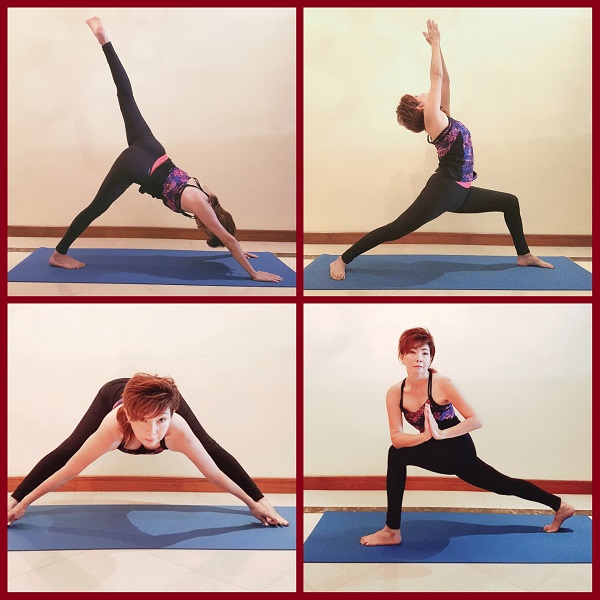
Rita Banik - Breast Cancer
Yes, yoga has helped me a lot. The various kinds of pranayama and asanas have helped me retain my health physically, it has helped to reduce acidity, and various body aches that i used to have off and on. I eat well and sleep better, good diversion from negative thoughts. On the whole I would say I feel younger since I have been regular with yoga.
Rita Banik is a Breast Cancer Survivor and founder of Race to Rein in Cancer
SM - Asthma
Yoga - specifically Pranayama - helps regulate breathing. People with asthma have high respiratory rates and Pranayama normalises that. This has a tremendous positive effect not only on asthma but it’s very beneficial for hypertension due to the calming effect. The "shuddhikaran kriya" though not for most people I suppose, also clears the nostrils, making breathing easier. (I can’t do this due to eye problems). Certain yoga asanas also help in expanding the lungs if the proper procedure is followed. In older people, this takes a long time and thus regularity is essential. In general, yoga reduces the mental stress levels in the body significantly. Since asthma is also psychosomatic, yoga is very effective. Pranayama is in fact almost magical if you get a good teacher.
Arvind Sanghvi - Multiple Sclerosis
In 1993, at 30, I was suddenly struck by a severe illness. One morning, I realized that I could not walk. I lay in bed like a vegetable. After a battery of tests, I was diagnosed with Multiple Sclerosis. Doctors commenced treatment with: Wysolene, Omez and Solumedrol Injections were given through saline and Compose Tablets. As if this was not enough, I lost the power of hearing in my left ear. From 1993 to 1995, I was totally paralyzed and unable to perform any physical activity. A ray of light came when I started doing yoga. There are several yogic techniques that have the ability to empower your body to move towards recovery. At Maharshi Vinod Research Foundation (MVRF) in Pune, I learnt about 'Yog Nidra' and 'Light Stretches', which over years have helped me to overcome my debility. Out of many methods of practicing yoga, I follow 'Satyananda Yoga (Integral Yoga)' technique from Bihar School of Yoga, Munger, Bihar. I have elaborated my strict regime for the last 15 years. I have followed it religiously due to which I did not have to succumb slowly to steroids. Meticulously I practiced simple techniques of 'Shavasana' and Aasanas, for two hours daily…and in 2003 I could enjoy nearly normal health. Many people suggested that I should concentrate on Yoga but I never took it seriously because I always thought Yog Nidra is just like sleeping in one place, but when I started I could feel the changes and Yoga benefited me a lot, whatever I am today it’s just by the power of Yoga. Yoga is not a one-time therapy that grants results like magic. However, regular practice is bound to give you extremely positive results in the long run. Slowly, as your duration of practice increases, you shall see your own stamina increase and health improve.
Arvind Sanghvi is a businessman from Pune
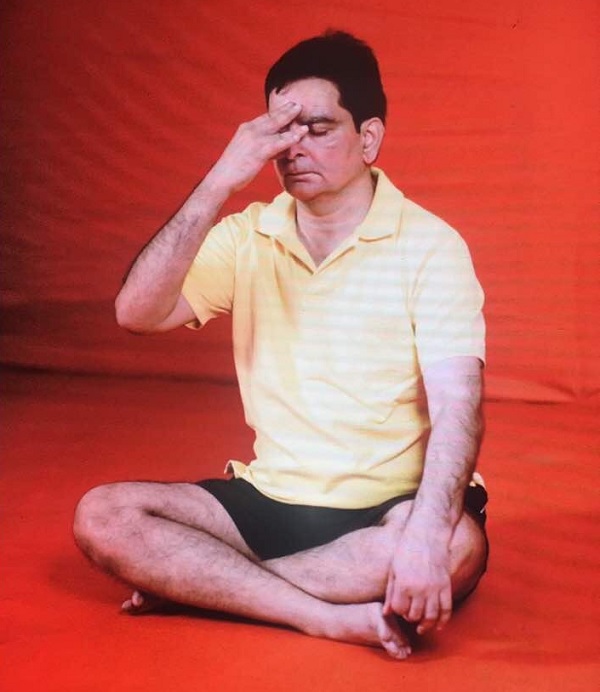
Cindy Payne - Guillain-Barré Syndrome
In August 2013, I was diagnosed with Guillain-Barré Syndrome (GBS), a rare disorder in which my immune system attacked and damaged my nerve cells, causing extensive muscle weakness and numbness in my hands and feet. I was fortunate that I did not have a serious case, resulting in paralysis and intubation; however, it was very scary because it developed quite suddenly and I immediately had trouble walking and holding things. I relied on Neurontin, a common nerve pain reliever to ease the discomfort, and I worked on improving my agility and steadiness with a lot of yoga. Though none of my yoga teachers had any first-hand experience with GBS, they researched the illness and helped me use props to compensate for the lack of sensation in my hands and feet, stabilise my balance, and slowly regain my energy. After 18 months, I was well enough to stop the Neurontin, though I still have some lingering light numbness in two fingers and the balls of my feet. Although I am mostly recovered, my balance is still not optimal and one-legged standing poses are challenging. Today, I am more dedicated to my yoga practice than ever before, practising almost every day. Not only have I experienced the physical healing benefits of yoga with increased strength, litheness, steadiness, coordination and alignment, but I also have more toned muscles, greater stamina and better posture. Moreover, I enjoy a calmer mind and balanced emotions, which have enabled me to be generally more focused in all activities in my daily life. I am now learning relaxation techniques and starting to meditate.
Vonita - Arthritis
Initially I felt rather odd to say this to anyone. Even though I felt strongly about it, words didn't come easy! Today I can very confidently say that I am addicted- to Yoga! I get withdrawal symptoms if I miss a session. Have experienced amazing results with regular practice of this ancient, yet very scientific form of living... wherein the manifestation is not only at the physical level but also at psychological and emotional level. I have been able to keep my pains and aches at bay (I was diagnosed with Sero negative Rheumatoid Arthritis 30 years ago) and feel lot in control of my situation ever since I have adopted the subtle mind body practice.Yoga is for all...you may just have to tweak it, improvise it but you CAN DO IT!
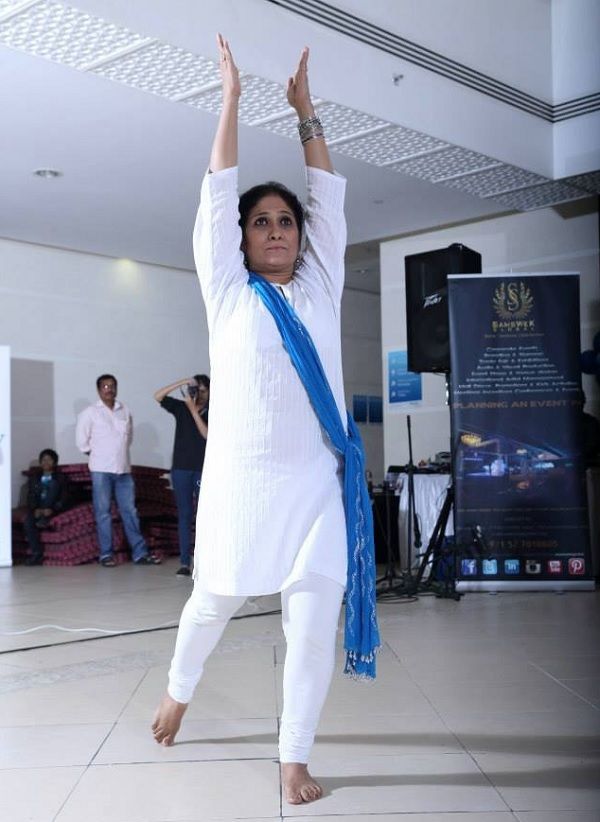
1. Please note yoga is not the cure for any of these cases and conditions. It complements the treatment regimen for all of these people.





